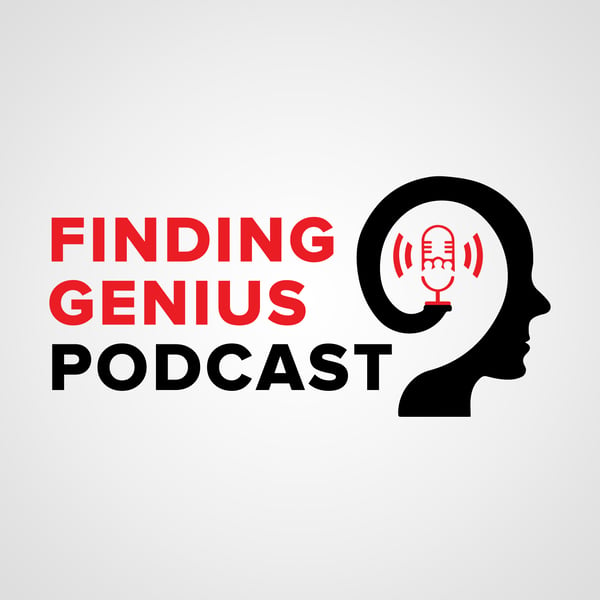Integrative Cancer Treatment with Dr. Gary Foresman
Finding Genius Podcast
Richard Jacobs
4.4 • 1K Ratings
🗓️ 16 March 2021
⏱️ 52 minutes
🧾️ Download transcript
Summary
What does it mean to treat the patient, not the disease? Dr. Gary Foresman helps listeners understand what this looks like in a day-to-day approach to cancer therapies, from new cancer treatments to integrative oncology.
Listen and learn
- Why he seeks a middle approach between western and eastern medicine, harnessing the best of what each has to offer,
- How he understands true integrative medicine as that which centers the patient not theories, and
- What daily habits can help healing through any cancer staging and how he brings patients through the process.
Dr. Gary Foresman specializes in integrative cancer therapies and regenerative medicine. He's the founder of Middle Path Medicine and works entirely in the clinical field. He's able to paint a very clear picture for listeners of what it could mean to approach cancer treatment through an integrative path.
This makes for a patient-oriented habit of practice, he explains. Each person makes their choice—sometimes that means more of a western approach with targeted chemo, and sometimes this means more of a natural approach. This patient-centered treatment, he adds, is really what integrative medicine should be. Ultimately, integrative practitioners are "providing tools for patients and allowing them to make better, informed decisions."
This means he takes a slightly different approach to counseling patients through diet and exercise choices and even meditation as ways to treat cancer. But, he's clear that nutrition treats people and not diseases: rather than ask which diet is best for cancer or heart disease, one should ask which diet is best for themselves, he explains. Often the first thing he talks about with a patient is their stress levels, an extremely important element in cancer treatment and healing.
Therefore, he's sensitive to pushing them towards diets or changes that might engender more stress rather than increase health outcomes. But he's honest with patients about what food, exercise, and mindful practices could provide them with a healthful balance alongside western approaches to treatment.
Listen in to hear more about what forms this advice takes.
For more about Dr. Gary Foresman, see Middle Path Medicine.
Episode also available on Apple Podcasts: apple.co/30PvU9C
Transcript
Click on a timestamp to play from that location
| 0:00.0 | Forget frequently asked questions. |
| 0:02.0 | Common sense, common knowledge, or Google. |
| 0:05.0 | How about advice from a real genius? |
| 0:07.0 | 95% of people in any profession are good enough to be qualified in license. |
| 0:11.0 | 5%? |
| 0:12.0 | Go above and beyond. |
| 0:13.0 | They become very good at what they do. |
| 0:15.0 | But only 0.1% are real geniuses. |
| 0:18.0 | Richard Jacobs has made his life's mission to find them. |
| 0:22.0 | For you, he hunts down and interviews geniuses in every field. |
| 0:25.0 | Sleep science, cancer, stem cells, ketogenic diets, and more. |
| 0:29.0 | Come the geniuses. |
| 0:30.0 | This is the Finding Genius Podcast. |
| 0:33.0 | The Richard Jacobs. |
| 0:36.0 | Quick note before we begin. |
| 0:39.0 | The Finding Genius Foundation, as part of the Finding Genius Podcast, has recently completed |
| 0:44.0 | a book about understanding viruses. |
| 0:46.0 | So the creation of this book was to interview 100 verologists, ask them a lot of deep difficult |
| 0:52.0 | questions, take the most difficult questions, and then re-interview the top 25 or so, and |
| 0:58.0 | ask them the hardest questions I could think of. |
| 1:00.0 | And we compile that all into a book. |
| 1:02.0 | So you'll see question and four or five experts answers. |
... |
Please login to see the full transcript.
Disclaimer: The podcast and artwork embedded on this page are from Richard Jacobs, and are the property of its owner and not affiliated with or endorsed by Tapesearch.
Generated transcripts are the property of Richard Jacobs and are distributed freely under the Fair Use doctrine. Transcripts generated by Tapesearch are not guaranteed to be accurate.
Copyright © Tapesearch 2025.

